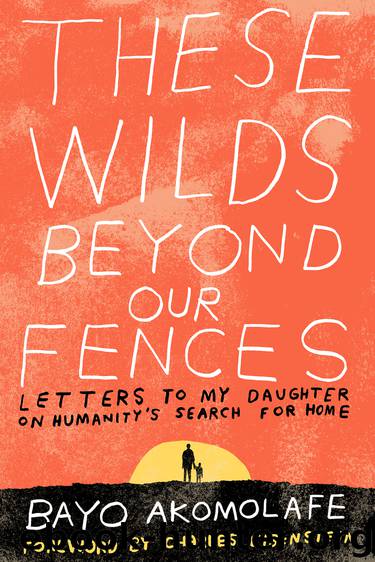These Wilds Beyond Our Fences by Bayo Akomolafe

Author:Bayo Akomolafe
Language: eng
Format: epub
ISBN: 9781623171650
Publisher: North Atlantic Books
Published: 2017-09-19T04:00:00+00:00
Your grandfather—your mother’s father and my other-father—was a proud Igbo man. He came from a respected line of Igbo men. His father was a chief and his mother a midwife. I have already written a little about him, and would write more if I knew him … if I had the honor of prostrating before him for his daughter’s hand in marriage.
He was Nwadiala—which in the Igbo language means “sons of the soil,” a designation for the freeborn that only makes sense in the context of what it excludes, those born of the weird, the Osu.
One can either be born of the soil, to the Nwadiala, or to the “accursed” Osu people. The Osu are considered untouchable, unclean and abominably alien to their communities. The Nwadiala neither marry them nor do business with their children. In fact, if a member of the Nwadiala wants to get married, the family of the intending one conducts thorough investigations to make sure that their own does not get entangled with an outcast. On the off chance a headstrong cross-caste couple insist on love and get married, certain measures are taken to quickly end the marriage or, in some aching instances, end the couple:
A human rights group outlined the atrocities meted out against the Osu in Igboland. They include: “parents administering poison to their children, disinheritance, ostracism, organized attack, heaping harvest offering separately in churches, denial [of] membership in social clubs, violent disruption of marriage ceremonies, denial of chieftaincy titles, deprivation of property, and expulsion of wives, etc.”4
After one of Achebe’s fictional characters is told by his son that he is about to get married to an Osu girl, he lectures him about the deeper import of his proposed action: “Osu is like a leprosy in the minds of my people. I beg of you my son not to bring the mark of shame and leprosy into your family. If you do, your children and your children’s children will curse you and your memory …You will bring sorrow on your head and on the heads of your children.”5
There aren’t many written histories of the Osu that one might refer to, but there are some oral histories that have been passed around. It is believed by some Igbo historians that the Osu caste system came into existence six centuries ago. The ones referred to as Osu emerged as a priestly class to administer and perform—on behalf of the community—a series of rituals to appease the gods of the Igbo indigenous cosmology, many of whom took on “the form of major topographical landmarks like streams, rivers, lakes, caves and mountains, or maybe trees, animals and famous ancestors.”6 It was part of the worship of these powerful deities to be attended to. Some of these supreme beings were ranked so high on a hierarchy of power that their proper care required “a retinue of high priests and attendants on full-time basis. The high priests’ attendants were responsible for performing intricate religious rituals, which were taboo to the average citizen, in the shrines of the deities.
Download
This site does not store any files on its server. We only index and link to content provided by other sites. Please contact the content providers to delete copyright contents if any and email us, we'll remove relevant links or contents immediately.
Still Foolin’ ’Em by Billy Crystal(36333)
We're Going to Need More Wine by Gabrielle Union(19020)
Plagued by Fire by Paul Hendrickson(17391)
Pimp by Iceberg Slim(14464)
Molly's Game by Molly Bloom(14120)
Becoming by Michelle Obama(10004)
When Breath Becomes Air by Paul Kalanithi(8408)
Educated by Tara Westover(8033)
The Girl Without a Voice by Casey Watson(7870)
The Incest Diary by Anonymous(7661)
Note to Self by Connor Franta(7657)
How to Be a Bawse: A Guide to Conquering Life by Lilly Singh(7458)
The Space Between by Michelle L. Teichman(6911)
What Does This Button Do? by Bruce Dickinson(6185)
Imperfect by Sanjay Manjrekar(5854)
Permanent Record by Edward Snowden(5811)
A Year in the Merde by Stephen Clarke(5396)
Shoe Dog by Phil Knight(5240)
Promise Me, Dad by Joe Biden(5130)
